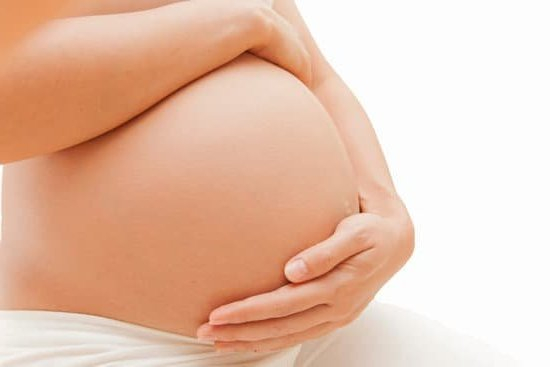Can you bleed like a period in early pregnancy? Understanding the early stages of pregnancy is crucial for expecting mothers, especially when it comes to identifying and interpreting potential signs of bleeding. Recognizing the difference between implantation bleeding and a regular period, as well as understanding common causes of bleeding in early pregnancy, can help alleviate anxiety and empower women with knowledge.
The early stages of pregnancy are a delicate and crucial time for both the mother and the developing fetus. It is during this time that the body undergoes significant changes to accommodate and nurture the growing embryo. However, it is not uncommon for women to experience some form of bleeding during early pregnancy, leading to confusion and concern about what is considered normal or abnormal.
Bleeding during early pregnancy can be a source of worry for many women. While some instances may be harmless, it is important to be aware of potential symptoms that could indicate a more serious issue. By staying informed about common causes, recognizing symptoms to watch out for, and knowing when to seek medical help, women can navigate through this uncertain time with a sense of empowerment and support.
Recognizing the Difference Between Implantation Bleeding and a Period
Understanding the early stages of pregnancy is crucial for women who are trying to conceive or have recently become pregnant. One common concern during the early stages of pregnancy is the possibility of bleeding, and many women wonder, “Can you bleed like a period in early pregnancy?” It’s important to recognize the difference between implantation bleeding and a period in order to alleviate anxiety and understand what is considered normal during early pregnancy.
Implantation Bleeding vs. Menstrual Period
Implantation bleeding occurs when the fertilized egg attaches itself to the uterine lining, typically around 6-12 days after ovulation. This light spotting is often pink or brown in color, lasts for a shorter duration than a typical period, and may be accompanied by mild cramping. On the other hand, a menstrual period involves heavier bleeding that lasts for several days, along with more intense cramping and other symptoms such as bloating and mood swings.
Color and Duration
One way to distinguish between implantation bleeding and a period is by paying attention to the color and duration of the bleeding. Implantation bleeding is generally lighter in flow and can vary in color from light pink to dark brown. It also tends to last for a shorter time frame, whereas a menstrual period consists of consistent red flow for several days.
Other Symptoms
It’s also important to consider any accompanying symptoms when trying to differentiate between implantation bleeding and a period. While implantation bleeding may be accompanied by mild cramps or no other symptoms at all, a menstrual period usually comes with more noticeable cramping, bloating, breast tenderness, and mood swings. By being aware of these differences, women can better understand whether they are experiencing normal symptoms of early pregnancy or something that requires medical attention.
Common Causes of Bleeding in Early Pregnancy
During the early stages of pregnancy, it is important for women to understand that bleeding can occur and may not necessarily indicate a problem. This section will discuss the common causes of bleeding in early pregnancy and provide some insight into when it may be a cause for concern.
Implantation Bleeding
One common cause of bleeding in early pregnancy is implantation bleeding. This occurs when the fertilized egg implants itself into the lining of the uterus, which can cause some light spotting or bleeding. Implantation bleeding typically occurs around the time of your expected period and is usually much lighter than a typical menstrual period. It may appear as light pink or brown spotting and can last for a few hours to a couple of days.
Changes in Hormones
Another common cause of bleeding in early pregnancy can be attributed to hormonal changes. During pregnancy, there are significant shifts in hormone levels, which can sometimes result in some light spotting or even heavy bleeding. These hormonal changes can lead to the shedding of the uterine lining, similar to a menstrual period, but this does not necessarily mean that there is something wrong with the pregnancy.
Miscarriage or Ectopic Pregnancy
While implantation bleeding and hormonal changes are common causes of bleeding, it is important to note that miscarriage or ectopic pregnancy can also lead to bleeding in early pregnancy. Miscarriage typically involves heavy bleeding with severe abdominal pain, while an ectopic pregnancy can cause vaginal bleeding along with sharp pelvic pain. If you experience these symptoms, it is crucial to seek medical help immediately.
Understanding these common causes of bleeding in early pregnancy can help alleviate some anxiety for expectant mothers while also providing them with valuable knowledge about when to seek medical attention. By staying informed about these potential causes, women can empower themselves with the knowledge needed to navigate through any concerns related to bleeding during early pregnancy.
Symptoms to Watch Out for During Early Pregnancy
During early pregnancy, it is important to be aware of the different symptoms that may arise. These symptoms can vary from woman to woman, but there are some common ones to watch out for. Here are some symptoms to keep an eye on during the early stages of pregnancy:
- Nausea and vomiting: Many women experience morning sickness during the early weeks of pregnancy. This can range from mild queasiness to severe vomiting.
- Breast tenderness: The hormonal changes in early pregnancy can cause a woman’s breasts to become tender or swollen.
- Fatigue: Feeling more tired than usual is a common symptom in early pregnancy, as the body works hard to support the developing fetus.
If you have other concerns such as “can you bleed like a period in early pregnancy,” it’s important to consult with your healthcare provider.
It is important to note that not all women will experience these symptoms, and some may experience additional symptoms not listed here. If you have any concerns about the symptoms you are experiencing, it is always best to consult with a medical professional for personalized advice and care.
When to Seek Medical Help for Bleeding in Early Pregnancy
Bleeding during early pregnancy can be a cause of concern for many women, and it is important to know when to seek medical help. While some light spotting can be normal in the early stages of pregnancy, especially during implantation, heavy bleeding or bleeding accompanied by severe abdominal pain or dizziness may indicate a more serious issue.
If you experience bleeding that is similar to a period in the early stages of pregnancy, it is crucial to consult with your healthcare provider. This type of bleeding may not necessarily indicate a miscarriage, as some women do experience regular menstrual-like bleeding throughout their pregnancies. However, it is always best to err on the side of caution and seek medical advice.
In addition to heavy bleeding, other symptoms that may warrant immediate medical attention during early pregnancy include passing blood clots, experiencing sharp pelvic pain, or feeling lightheaded or faint. These could be signs of an ectopic pregnancy or a potential miscarriage, and prompt medical evaluation is necessary.
| Signs to Watch For | Action Needed |
|---|---|
| Heavy bleeding similar to period | Consult healthcare provider |
| Passing blood clots; Sharp pelvic pain; Feeling lightheaded or faint | Seek immediate medical evaluation |
Tips for Managing Anxiety About Bleeding in Early Pregnancy
During the early stages of pregnancy, it is not uncommon for women to experience anxiety about the possibility of bleeding. This anxiety is understandable, as bleeding can be a cause for concern during pregnancy. It’s important to remember that not all bleeding in early pregnancy is a sign of something serious, and understanding the difference between normal and abnormal bleeding can help manage anxiety.
One important thing to keep in mind is that implantation bleeding can occur in early pregnancy, which may resemble a light period. This type of bleeding is usually lighter and shorter in duration than a typical menstrual period. It may also be accompanied by other symptoms such as mild cramping or spotting. Understanding the difference between implantation bleeding and a normal period can help ease anxiety about bleeding in early pregnancy.
To manage anxiety about bleeding in early pregnancy, it’s important to stay informed and educated about the common causes of bleeding during this time. Knowing what symptoms to watch out for and when to seek medical help can provide reassurance and peace of mind. Additionally, finding support from healthcare providers, trusted friends or family members, or online communities can also help manage anxiety about early pregnancy bleeding.
Remember that every woman’s experience with early pregnancy bleeding may vary, so it’s essential to focus on individual symptoms and seek guidance from healthcare professionals when necessary. By staying informed and seeking support, women experiencing anxiety about early pregnancy bleeding can feel empowered and reassured during this important time in their lives.
Personal Stories and Experiences of Bleeding in Early Pregnancy
During the early stages of pregnancy, many women may experience unanticipated bleeding, causing significant concern and anxiety. It’s important for women to be aware of the various experiences of bleeding in early pregnancy to understand that each situation is unique. Here are some personal stories and experiences shared by women who have gone through bleeding in early pregnancy:
- Emma S. – “I was terrified when I saw spotting at around 6 weeks into my pregnancy. I immediately went to the doctor, and it turned out to be implantation bleeding. It was such a relief to know that everything was okay.”
- Jessica R. – “I had heavier bleeding at around 9 weeks, and I was so scared that I was having a miscarriage. It turns out that I had a subchorionic hematoma, which resolved on its own with proper rest.”
- Hannah T. – “I had no idea that you could bleed like a period during early pregnancy until it happened to me at 5 weeks. It turned out to be a chemical pregnancy, but it opened my eyes to the different ways bleeding can manifest during this time.”
These narratives showcase the diverse range of experiences that women can have when it comes to bleeding in early pregnancy. While some instances may cause distress, others can provide reassurance or prompt medical intervention.
It’s important for women to understand that personal experiences with bleeding during early pregnancy can vary widely and should always be evaluated by a healthcare professional.
Remember, every woman’s journey through early pregnancy is unique, and seeking support from medical professionals and other individuals who have gone through similar experiences is crucial during this sensitive time.
The Importance of Staying Informed and Educated About Early Pregnancy Bleeding
One of the most crucial aspects of early pregnancy is staying informed and educated about the various possibilities and symptoms that may arise. This includes being aware of the different types of bleeding that can occur during the early stages of pregnancy. While it is common for women to experience some light spotting or bleeding during early pregnancy, it is important to understand what distinguishes implantation bleeding from a regular period.
Implantation bleeding occurs when the fertilized egg attaches itself to the lining of the uterus, typically around 6-12 days after ovulation. This type of bleeding is usually lighter in flow and shorter in duration compared to a typical menstrual period. Understanding this distinction can help alleviate anxiety and provide reassurance to women who may be concerned about experiencing bleeding in early pregnancy. It can also aid in recognizing when medical attention may be necessary.
By educating themselves about the common causes and symptoms of bleeding in early pregnancy, women can better prepare themselves for what to expect and how to respond. Additionally, having accurate information can help dispel misconceptions and myths surrounding this topic, ultimately empowering women with knowledge and support during this delicate stage.
Conclusion
In conclusion, it is essential for women to be empowered with the knowledge and support they need during the early stages of pregnancy, particularly when it comes to understanding and managing bleeding. Recognizing the difference between implantation bleeding and a period is crucial, as it can help alleviate anxiety and provide reassurance during this delicate time.
Being aware of common causes of bleeding in early pregnancy and knowing when to seek medical help are also important factors in ensuring the well-being of both mother and baby.
It’s natural for expectant mothers to feel anxious about any signs of bleeding in early pregnancy, but seeking medical advice can provide clarity and peace of mind. Understanding the symptoms to watch out for during early pregnancy, such as severe abdominal pain or heavy bleeding, can help women make informed decisions about their health.
By sharing personal stories and experiences of bleeding in early pregnancy, women can find comfort in knowing that they are not alone in their journey. The importance of staying informed cannot be overstated; through education and support, women can navigate the uncertainties of early pregnancy with confidence and empowerment. With access to reliable information and a strong support system, women can effectively manage anxiety about bleeding in early pregnancy and focus on nurturing themselves and their growing baby.
Frequently Asked Questions
Can Pregnancy Bleeding Seem Like a Period?
Pregnancy bleeding can sometimes resemble a period, especially during the early stages of pregnancy. This can cause confusion for some women who may mistake it for a normal menstrual cycle.
Has Anyone Had Period Like Bleeding in Early Pregnancy?
Yes, some women have experienced period-like bleeding in the early stages of their pregnancy. This can be concerning and may lead to uncertainty about whether they are actually pregnant or not.
Can You Bleed Heavily and Still Be Pregnant?
It is possible to bleed heavily and still be pregnant. This type of bleeding, often referred to as “implantation bleeding,” can occur when the fertilized egg attaches itself to the uterine lining. While it may be alarming, it does not always indicate a problem with the pregnancy.

Welcome to my fertility blog. This is a space where I will be sharing my experiences as I navigate through the world of fertility treatments, as well as provide information and resources about fertility and pregnancy.





